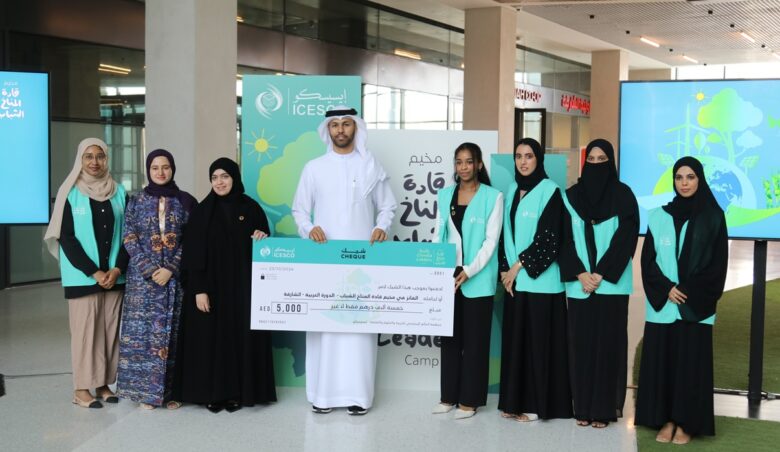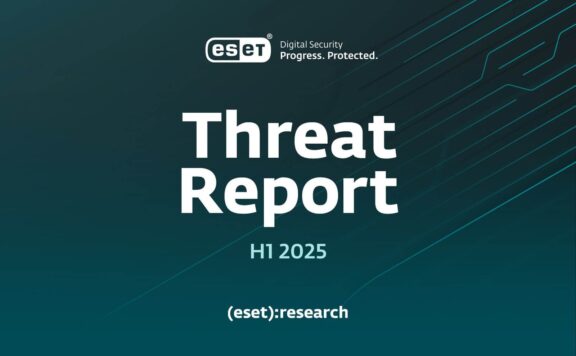A blockchain-powered sustainable marketplace concept developed by a team led by a student from the American University of Sharjah (AUS) won first place at the Islamic World Educational, Scientific and Cultural Organization’s (ICESCO) Youth Climate Leaders Camp – Arab Chapter held at Sharjah Research Technology and Innovation Park recently. Called Thimmar, this innovative platform connects consumers with farming communities and offers AI-optimized grocery subscriptions to cut food waste and connect. It will debut in the ICESCO Pavilion in COP29 in Azerbaijan this month.
Thimaar, which aligns with two key areas of the UAE Year of Sustainability 2024—responsible consumption and planting wisely—brings this year’s slogan, “Plan to Action,” to life. It also contributes to the United Nations Sustainable Development Goals: No Hunger, Good Health and Well-being, Sustainable Cities and Communities, Responsible Consumption and Production, Climate Action, and Partnerships for the Goals.
“Our motto is reach, relive and reward. Through the platform, AI-calculated portions will help our customers to minimize food waste. They will also virtually connect with the farmers who grow their food, experiencing organic farming from home while also supporting the organic agriculture industry through micro-financing,” said Izma Fatima, an AUS international studies student who presented the concept on behalf of her team. “Additionally, customers receive loyalty points and gifts with organic and food waste collection. Waste is repurposed to benefit local organic farming communities in Sharjah, in alignment with the UAE’s efforts to reduce waste by 50 percent by 2030.”
By embracing a circular economy model, Fatima noted that Thimaar achieves three key goals: “making organic and sustainably produced products accessible, promoting a culture of organic farming, and minimizing food waste.”
Emphasizing a bottom-up approach that fosters healthy consumer habits, rather than flooding the market with sustainable products that have low demand, the team—comprising seven female students from Oman, Qatar, Sudan and the UAE—focused on female homemakers in the region as their target.
“Women are responsible for making the primary household consumption decisions and are seeking healthy, sustainable options for their families. However, they often face barriers to organic farming, including opposing trends, limited availability and accessibility, and a lack of time and resources. The organic food market in the UAE is projected to reach $500 million by 2025, with female homemakers representing about 10 percent of that market. For Thimaar, this equates to a target market of approximately $50 million. By tapping into this market, the platform not only aligns with the UAE’s sustainability initiatives but also offers a scalable solution that meets the growing demand for healthy, sustainable food options,” said Fatima.
Proposed key partners for the platform would include organic farms and markets, sustainability-focused brands and local governments.
Developing Thimaar followed a thorough process of study that included field visits and discussions with ICESCO, Sheraa, Shajar and Manbat, who provided the student team with access to networks and contacts to leverage support for the initiative.
“We visited Manbat and Shajar, two projects in Sharjah, that explore cultivation practices to maximize organic production through sustainable methods in this region. Facilitating these ideas was a central focus of our project proposal. We also had the pleasure of learning from professors from leading universities across the UAE specializing in economics, sustainable engineering, environmental philosophy, and environmental, social and governance experts, about the popular trends and technologies that focus on the climate challenges unique to the region,” said Fatima.
Having designed and presented the elevator pitch for the final project, Fatima highlighted how the multidisciplinary education she received at AUS contributed to her ability to approach the project from diverse perspectives.
“I am beyond grateful to AUS for facilitating this one-of-a-kind learning opportunity. The multidisciplinary courses that I took in AUS during my very first year—including but not limited to environmental sciences, organic chemistry, economics and international studies—gave me the multifaceted edge I needed to win. I strongly believe that the variety of courses I took allowed me to approach the project from multiple angles to deliver a comprehensive solution. I want to especially mention Dr. Jessica Davis, Assistant Professor in International Studies at AUS, who trained us for the presentation and offered us invaluable guidance,” said Fatima.





